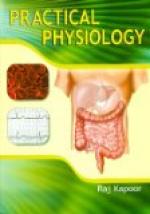It is a further indication of the supreme importance of the brain, that about one-fifth of the entire blood of the body is furnished to it. Manifestly, then, this vital organ must be tenderly cared for. It must indeed be well nourished, and therefore the blood sent to it must be highly nutrient, capable of supplying oxygen freely. This condition is essential to successful brain action. But intoxicants bring to it blood surcharged with a poisonous liquid, and bearing only a limited supply of oxygen.
Another condition of a healthy brain is that the supply of blood to it shall be equable and uniform. But under the influence of strong drink, the blood pours into the paralyzed arteries a surging tide that floods the head, and hinders and may destroy the use of the brain and the senses. Still another requirement is that whatever is introduced into the cerebral tissues, having first passed through the stomach walls and thence into the blood, shall be bland, not irritating. But in the brain of the inebriate are found not only the distinct odor but the actual presence of alcohol. Thus we plainly see how all these three vital conditions of a healthy brain are grossly violated by the use of intoxicants.
“I think there is a great deal of injury being done by the use of alcohol in what is supposed by the consumer to be a most moderate quantity, to persons who are not in the least intemperate, and to people supposed to be fairly well. It leads to degeneration of the tissues; it damages the health; it injures the intellect. Short of drunkenness, that is, in those effects of it which stop short of drunkenness, I should say from my experience that alcohol is the most destructive agent we are aware of in this country.”—Sir William Gull, the most eminent English physician of our time.
293. Why the Brain Suffers from the Alcoholic Habit. We do not find that the alcoholic habit has produced in the brain the same coarse injuries that we see in other organs, as in the stomach, the liver, or the heart. Nor should we expect to find them; for so delicate and so sensitive is the structure of this organ, that a very slight injury here goes a great way,—a disturbance may be overwhelming to the brain that would be only a trifle to some of the less delicate organs.
Alcohol has different degrees of affinity for different organs of the body, but much the strongest for the cerebral tissues. Therefore the brain feels more keenly the presence of alcohol than does any other organ. Almost the moment that the poison is brought into the stomach, the nerves send up the alarm that an invading foe has come. At once there follows a shock to the brain, and very soon its paralyzed blood-vessels are distended with the rush of blood. This first effect is, in a certain sense, exhilarating, and from this arousing influence alcohol has been erroneously considered a stimulant; but the falsity of this view is pointed out elsewhere in this book.




